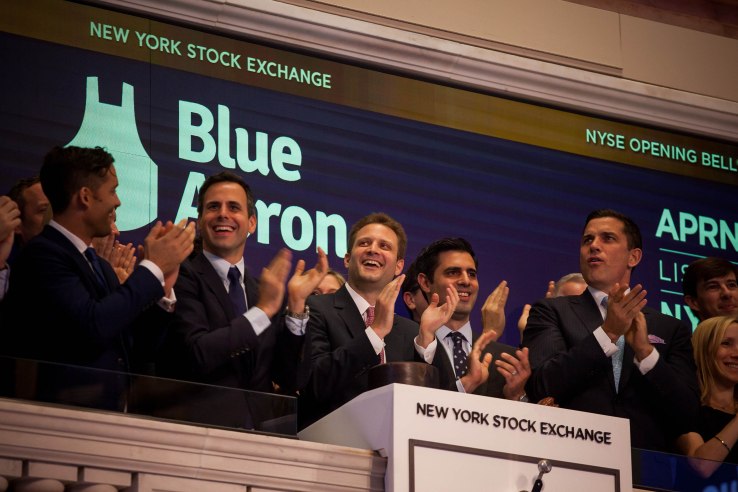Blue Apron is having another awful day and its shares are crashing

Since going public last month, things have not gone particularly well for Blue Apron, thanks to the specter of Amazon and its $13.7 billion acquisition bid for Whole Foods. The bad news, again, continues to roll in as what may have been a competitor in theory now seems more and more like an existential threat.
Blue Apron’s shares are down another 10 percent today, continuing a streak of mistrust and misfortune on the public markets since making its debut. That seems on the heels of evidence of its ambitions in the meal-kit market through the form of trademark filing earlier this month. Amazon is well known to bulldoze its way into new, sometimes perpendicular markets — like minting a $10 billion plus business in server farms and buying a video game live-streaming company — and now it looks like the company has set its eyes on meal-kit delivery.
That’s seems for good reason, too. In just the span of a few years, Blue Apron has exposed a business that generated nearly $800 million in revenue in 2016 and was able to eke out a small profit in the first quarter that year. While the company is now burning an enormous amount of cash to acquire and hold onto customers, Amazon has logistics down to a near-perfected science. It seems only logical that Amazon would be watching an area like this very closely, and by buying Whole Foods, may see an opportunity to pick off that now low-hanging fruit.
After starting off the process with a lot of good will, Blue Apron had to revise down its IPO price — and even then that seems to have been optimistic. In the middle of Blue Apron’s road show to investors ahead of the IPO, Amazon announced it would make a big bid for Whole Foods, basically stealing Blue Apron’s thunder and giving it a massive question mark for its future. Finally listing at a share price of $10, the company’s stock hit $6.51 today and has seen its price shed a third of its value in just a couple of weeks.
Blue Apron has a lot to prove now to show Wall Street that it’s not just a niche business that makes sense as part of a greater delivery empire like Amazon. That’s going to be even more critical now, as keeping that stock price up helps fend off activists that may try to agitate change in its business and keep talent around with robust compensation packages. The morale component, too, is important, as it wants to ensure potential candidates see it as a long-term business with potential over the next few years.
Featured Image: Michael Nagle/Bloomberg via Getty Images